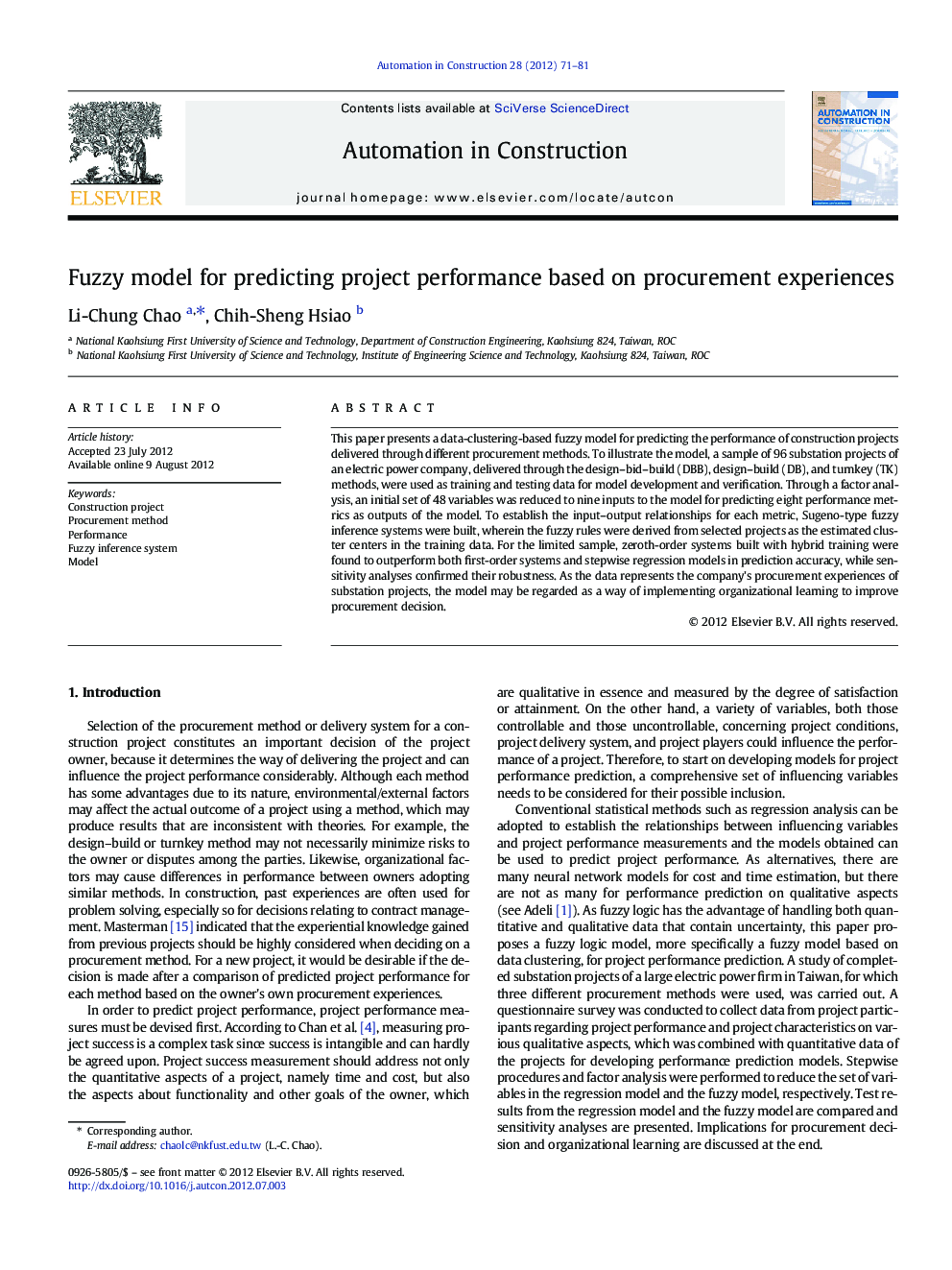| Article ID | Journal | Published Year | Pages | File Type |
|---|---|---|---|---|
| 246833 | Automation in Construction | 2012 | 11 Pages |
This paper presents a data-clustering-based fuzzy model for predicting the performance of construction projects delivered through different procurement methods. To illustrate the model, a sample of 96 substation projects of an electric power company, delivered through the design–bid–build (DBB), design–build (DB), and turnkey (TK) methods, were used as training and testing data for model development and verification. Through a factor analysis, an initial set of 48 variables was reduced to nine inputs to the model for predicting eight performance metrics as outputs of the model. To establish the input–output relationships for each metric, Sugeno-type fuzzy inference systems were built, wherein the fuzzy rules were derived from selected projects as the estimated cluster centers in the training data. For the limited sample, zeroth-order systems built with hybrid training were found to outperform both first-order systems and stepwise regression models in prediction accuracy, while sensitivity analyses confirmed their robustness. As the data represents the company's procurement experiences of substation projects, the model may be regarded as a way of implementing organizational learning to improve procurement decision.
► A data-clustering-based fuzzy model is proposed for project performance prediction. ► The data comprises a power firm’s substation projects completed by DBB, DB, and TK. ► The model identifies effects of an array of variables on eight performance metrics. ► Hybrid-trained zeroth-order FIS perform best and sensitivity analyses uphold them.
